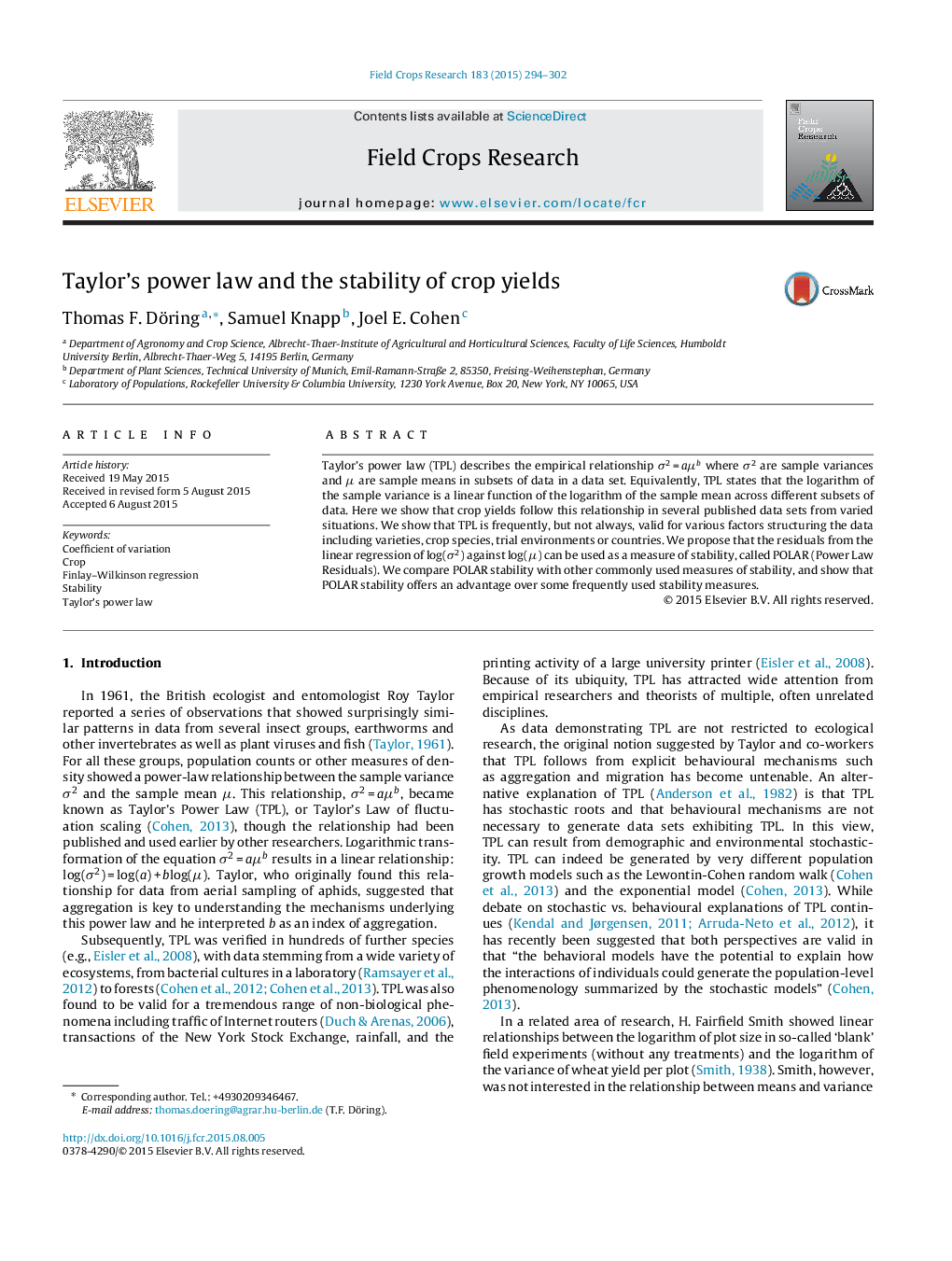| Article ID | Journal | Published Year | Pages | File Type |
|---|---|---|---|---|
| 6374702 | Field Crops Research | 2015 | 9 Pages |
Abstract
Taylor's power law (TPL) describes the empirical relationship Ï2 = aμb where Ï2 are sample variances and μ are sample means in subsets of data in a data set. Equivalently, TPL states that the logarithm of the sample variance is a linear function of the logarithm of the sample mean across different subsets of data. Here we show that crop yields follow this relationship in several published data sets from varied situations. We show that TPL is frequently, but not always, valid for various factors structuring the data including varieties, crop species, trial environments or countries. We propose that the residuals from the linear regression of log(Ï2) against log(μ) can be used as a measure of stability, called POLAR (Power Law Residuals). We compare POLAR stability with other commonly used measures of stability, and show that POLAR stability offers an advantage over some frequently used stability measures.
Related Topics
Life Sciences
Agricultural and Biological Sciences
Agronomy and Crop Science
Authors
Thomas F. Döring, Samuel Knapp, Joel E. Cohen,
